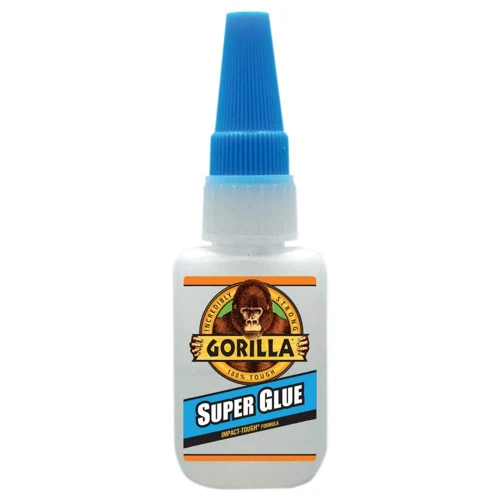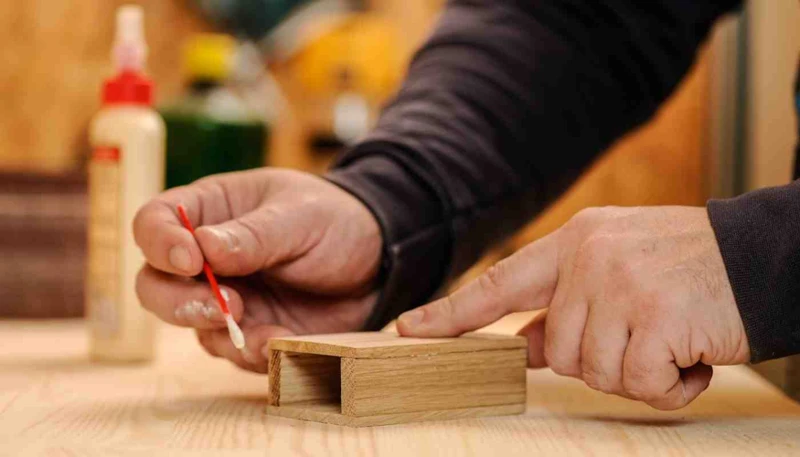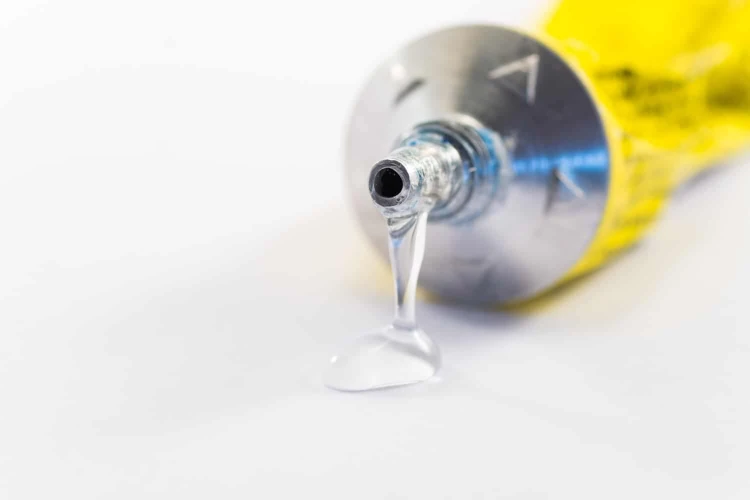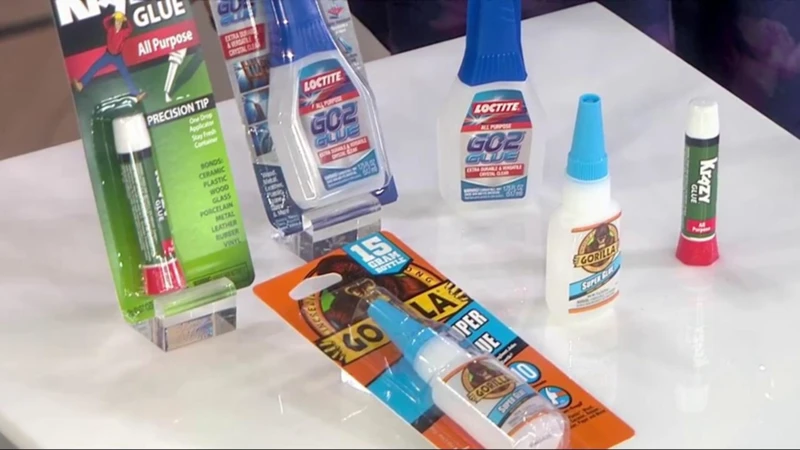If you have ever used super glue, you might have wondered if the adhesive is waterproof when dry. This is a common concern, especially if you need to use it for water-related tasks. In this article, we explore the components and chemical reactions of super glue, examine if super glue is waterproof, discuss what happens when it gets wet, and provide tips on safe and effective use. By the end, you’ll have all the information you need to determine if super glue is the right adhesive choice for your specific needs.
What is Super Glue?
If you’ve ever needed to quickly fix a broken item, you may have turned to super glue. This popular adhesive is known for its strength, quick bond, and versatility. From repairing furniture to fixing broken jewelry, super glue can be used for a wide variety of projects. But what exactly is super glue and how does it work? Let’s take a closer look at this powerful adhesive and its unique properties. If you need guidance on how to glue different materials together, take a look at our step-by-step guides: how to glue wood to glass, how to glue metal to stone, how to glue chair legs, how to glue Styrofoam to metal, how to glue plastic to glass, how to glue pottery, what is RTV glue, how to glue sandstone together, how to glue a stone back into a ring, and how to glue quartz countertop.
Composition of Super Glue
Super glue, also known as cyanoacrylate adhesive, is a fast-acting, strong adhesive that bonds quickly. It is composed of various chemicals that contribute to its unique properties. The main ingredient in super glue is cyanoacrylate, a clear liquid monomer that creates a strong bond when it reacts with moisture. Other chemicals commonly found in super glue include:
- Acetone: used as a stabilizer and works to slow down the hardening process of the glue.
- BHT (butylated hydroxytoluene): works as an antioxidant and is added to prevent premature hardening of the glue.
- Poly (methyl methacrylate): also known as PMMA, is a thermoplastic resin that makes the glue more resistant to impact and shock.
- Hydroquinone: is added to prevent the glue from hardening in the bottle and is typically found in small quantities.
When these ingredients are combined, they form a powerful adhesive that can bond almost any surface in mere seconds. However, it is important to note that super glue should be used with caution as it can be dangerous if not handled properly.
How Does Super Glue Work?
Have you ever wondered how super glue can instantly bond objects together with just a few drops? The answer lies in the unique chemical properties of this adhesive. Super glue, also known as cyanoacrylate adhesive, is a popular bonding agent that has been used for decades in various industries. In this section, we will delve into the mechanics of how super glue works and the chemical reactions that lead to its high-strength bonding properties. So, without further ado, let’s uncover the science behind super glue.
Chemical Reactions of Super Glue
Super glue, also known as cyanoacrylate adhesive, is a fast-drying, strong adhesive that bonds almost instantly when it comes into contact with moisture. The bonding process involves a chemical reaction called anionic polymerization. Let’s take a closer look at the chemical reactions that occur when using super glue.
| **Chemical Reaction** | **Description** |
| — | — |
| Anionic polymerization | When super glue comes into contact with moisture, the chemical makeup of the glue changes, and the adhesive bonds with the surface it’s applied to. The process starts with a nucleophile attacking the electrophilic carbon of the cyanoacrylate molecule. This initiates a chain reaction, where successive molecules add to the growing chain, creating a polymer.|
| Exothermic reaction | The anionic polymerization process releases heat energy as a byproduct, creating an exothermic reaction. This reaction speeds up the bonding process and is what allows the glue to dry quickly. It’s important to note that the heat generated can cause burns or damage to surfaces, so it’s essential to use the glue in a well-ventilated area and with caution. |
| Hydrolysis | When super glue is exposed to water, the polar bonds in the glue are disrupted, resulting in hydrolysis. The reaction causes the glue to break down and lose its adhesive properties. Additionally, the presence of water on surfaces can prevent the glue from bonding properly in the first place.|
The chemical reactions of super glue involve anionic polymerization, an exothermic reaction, and hydrolysis. These reactions are the foundation for the fast-drying, strong adhesive properties of super glue, but they also require careful handling to avoid any mishaps or accidents.
Is Super Glue Waterproof?
One of the most frequently asked questions about super glue is its waterproofing ability. Can it survive water exposure? Will it remain bonded even when submerged? These are some concerns that have lead people to question the adhesive’s effectiveness in damp or wet environments. In this section, we’ll delve into the waterproofing abilities of super glue, exploring the factors that affect its adhesive properties and its common uses.
Factors Affecting Adhesive Quality
The quality of super glue adhesive depends on various factors, such as:
- Surface Type: Super glue works best on clean and smooth surfaces. Rough or porous surfaces may not provide maximum adhesion.
- Humidity: Moisture in the air can affect the quality of super glue adhesive. The ideal humidity range for super glue to work effectively is between 40% to 60%.
- Temperature: Extreme temperatures can also impact the adhesive ability of super glue. The optimal working temperature for super glue is within the range of 68°F to 77°F (20°C to 25°C).
- Material Compatibility: Super glue may not work on certain materials such as polyethylene, polypropylene, and Teflon, as they have low surface energy and do not provide enough bonding strength.
It is essential to keep these factors in mind when using super glue for adhesive purposes. Failure to do so may result in a weak bond that won’t last long. Always ensure that the surfaces are clean, dry, and free from dust and oils before applying super glue for maximum adhesion.
Common Uses of Super Glue
Super glue is a versatile adhesive that can be used in a wide range of situations. Here are some of the most common uses of super glue:
| Common Use | Description |
|---|---|
| Arts and Crafts | Super glue is often used in arts and crafts projects, especially in model-building and other similar activities where small pieces need to be glued together quickly and securely. |
| Repairing Household Items | Super glue can be used to repair a variety of household items, such as ceramic figurines, wooden picture frames, plastic toys, and more. It can also be used to fix broken handles or hinges on doors. |
| Jewelry Making | Super glue is commonly used in jewelry making when attaching clasps, beads, or other small items to the main piece. However, it should be used with caution on certain materials that may be damaged by the glue, such as pearls or other delicate gems. |
| Medical Applications | Super glue is often used in medical settings as an alternative to stitches for closing small wounds. It is also used in dentistry to fix broken dentures or attach braces to teeth. |
| Automotive Repairs | Super glue can be used in automotive repairs to fix broken plastic parts, such as side mirrors or tail light covers. It can also be used to seal small leaks in hoses or pipes. |
It’s important to note that while super glue can be a useful tool, it should be used with caution and in accordance with the manufacturer’s instructions. In some cases, it may not be the best adhesive for a particular project or material and alternative options should be explored.
What Happens When Super Glue Gets Wet?
Have you ever wondered what happens to super glue when it gets wet? It’s a valid concern, especially when you’ve invested time and effort in a project that involves using this adhesive. Water has a remarkable effect on most adhesives, and super glue is no exception. In this section, we’ll explore the impact of water on super glue and whether it retains its adhesive quality when exposed to water. Let’s dive in!
Impact of Water on Super Glue
When super glue comes into contact with water, it undergoes a fascinating chemical reaction that can impact its effectiveness. Excessive moisture can cause the adhesive to lose its bonding strength, leading to a weaker attachment between the surfaces. As a result, it is important to understand the impact of water on super glue.
Table: Impact of Water on Super Glue
| Impact of Water on Super Glue | Effect |
|---|---|
| Excess Moisture | Weakens the bonding strength |
| Slow Drying Time | Can result in a weaker bond |
| Humidity | Can activate the glue prematurely, resulting in a weaker bond |
When super glue is exposed to water, it can take longer to dry. This can result in a weaker bond and affect its overall effectiveness. Additionally, high humidity levels can activate the glue before it is applied to the surface, resulting in a weaker bond. It is important to keep the surfaces to be glued dry and avoid exposing the adhesive to excess moisture.
While super glue is known for its strong adhesive properties, its effectiveness can be negatively impacted by water. Keeping the surfaces dry and avoiding exposure to excess moisture is crucial for ensuring a strong and long-lasting bond.
When and How to Use Super Glue
Super glue is a popular adhesive that can come in handy for fixing different types of materials. Whether you need to fix a broken piece of jewelry or mend your favorite pair of shoes, super glue can be an ideal solution. However, it’s crucial to know when and how to use super glue to ensure you achieve the desired results. In this section, we’ll provide some guidance on how to use super glue effectively and safely.
Safety Tips for Super Glue Use
When working with super glue, it’s important to practice safety precautions to prevent accidents and injuries. Here are some safety tips for super glue use:
| TIP | DESCRIPTION |
|---|---|
| 1. Protect your skin and eyes | Super glue can cause skin irritation or burn the skin on contact. Wear gloves to protect your hands and avoid applying super glue near your eyes. |
| 2. Use in a well-ventilated area | Super glue releases fumes that can cause eye irritation, coughing, or headaches. Use super glue in a ventilated area and avoid inhaling the fumes. |
| 3. Keep children and pets away | Keep super glue and other adhesives away from children and pets since they may accidentally touch or ingest them. |
| 4. Avoid contact with clothing | Super glue is difficult to remove from clothing, so avoid using it near your clothes or other fabrics. If you do get glue on clothing, avoid pulling it off immediately and instead, soak the clothing in warm soapy water to dissolve the adhesive. |
| 5. Do not ingest | Super glue is toxic when ingested and can cause throat burning, pain, or difficulty swallowing. Seek medical help immediately if you accidentally swallow super glue. |
| 6. Store properly | Store super glue in a cool, dry place away from direct sunlight and heat sources. Once opened, use the glue within its shelf life to ensure maximum adhesion. |
By following these safety tips, you can safely use super glue for your various bonding needs. Remember to use caution and always read the product label before use.
Alternatives to Super Glue
While super glue is a popular choice for its versatility and quick-drying nature, it may not always be the best option. In some cases, alternative adhesives may be more suitable for the task at hand. Here are some alternatives to super glue that you may consider:
Epoxy: Epoxy is a two-part adhesive that is known for its strong bonding properties and resistance to water and chemicals. It is commonly used in construction, automotive and marine industries due to its durability. However, it typically takes longer to dry and may require some mixing.
Silicone: Silicone adhesive is a flexible, rubber-like substance that can bond well to a variety of materials. It is commonly used for sealing, weather-stripping, and automotive applications. It is highly resistant to water, heat, and chemicals, but may not be as strong as super glue or epoxy.
Polyurethane: Polyurethane adhesive is a versatile adhesive that can bond well to a variety of surfaces, including wood, plastic, and metal. It is waterproof and resistant to impact and vibration. However, it can take a long time to dry, and may require clamping to ensure proper bonding.
Hot glue: Hot glue is a fast-setting adhesive that is commonly used for arts and crafts applications. It is easy to use and comes in a variety of colors and formulations. However, it may not be as strong as super glue or other adhesives and may not be suitable for more demanding applications.
When choosing an alternative adhesive, consider the nature of your project and the materials that need to be bonded. Always follow the instructions carefully to ensure proper bonding and avoid any safety hazards. It’s also important to note that certain adhesives may not be compatible with certain materials, so always test a small area first before applying to larger surfaces.
Conclusion
In conclusion, super glue is an incredibly useful adhesive that can bond a wide variety of materials quickly and effectively. Its waterproof property means that it is suitable for use in many different applications, such as repairing outdoor furniture or even fixing leaks in pipes.
However, it is important to consider the safety precautions when using super glue, as it can be harmful if it comes into contact with skin or eyes. If this occurs, seek medical attention immediately.
Additionally, while super glue is a great option for many bonding needs, it may not always be the best choice. There are alternative adhesives available for specific applications, such as epoxy for metal bonding or cyanoacrylate glue for delicate materials like plastics.
In summary, super glue is a versatile and handy adhesive that should be a staple in any DIY toolkit. Its waterproof property makes it suitable for a range of uses, but safety precautions must be followed to prevent any accidents. It can be a great option but also consider alternative adhesives for specific applications.
Frequently Asked Questions
Can I use super glue on plastic?
Yes, super glue can be used on most plastics, but it may not be suitable for some types of plastic, such as polyethylene or polypropylene.
Will super glue work on metal?
Super glue can work on metal surfaces, but it won’t be as strong as other types of adhesives that are specifically designed for metal bonding.
Does super glue work on glass?
Super glue can be used on glass surfaces, but it can be affected by water and temperature changes. There are specific types of glue designed for glass bonding that may be more effective.
How long does it take super glue to dry?
Super glue usually dries within a few seconds to a minute, depending on the amount of glue applied and the environment it is used in.
Is super glue waterproof?
Super glue has some resistance to water and can withstand brief exposure. However, it is not completely waterproof and extended exposure to water can weaken its bond.
Can I remove super glue from my skin?
Yes, super glue can be removed from skin using acetone or nail polish remover. It’s important to act quickly and to avoid pulling the skin apart to prevent further damage.
Is super glue toxic?
Super glue is generally safe to use and has low toxicity. However, it should be used in a well-ventilated area and kept out of reach of children.
Can I use super glue for medical purposes?
No, super glue should not be used for medical purposes. There are specific medical-grade adhesives that are safe for use on skin and internal tissue.
How can I ensure a strong bond with super glue?
To ensure a strong bond, make sure the surfaces to be bonded are clean and free of oil and dirt. Apply a small amount of glue and press the surfaces together firmly for at least 30 seconds.
What is the shelf life of super glue?
The shelf life of super glue varies, but it is usually around 12-24 months. It is important to store it properly in a cool, dry place to extend its shelf life.




